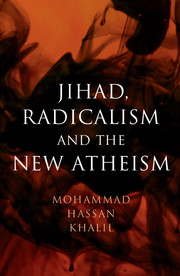4 - “Our Hearts Bleed”: 9/ 11 and Contemporary Muslim Thought
from Part II - Violent Radicalism: Bin Laden, 9/ 11, and ISIS
Published online by Cambridge University Press: 12 December 2017
Summary
Contrary to popular belief, numerous prominent Muslim scholars, clerics, leaders, and organizations throughout the world publicly, explicitly, and fairly quickly condemned the September 11 attacks, often on Islamic grounds. Many of the condemnations came from some of the most outspoken critics of the United States, including controversial Egyptian cleric Yusuf al-Qaradawi, Hamas founder Ahmed Yassin (d. 2004), and Iranian Supreme Leader Ali Khamenei. If one were to study Georgetown University's 2009 list of the 500 most influential Muslims in the world – an imperfect yet useful list – one would find that the overwhelming majority of those individuals were opposed to the attacks.
According to a major 2008 Gallup poll, the same is true for Muslims in general: after interviewing tens of thousands of Muslims across dozens of Muslim-majority countries from 2001 to 2007, Gallup found that a disturbing yet relatively small percentage of respondents – 7 percent to be precise – thought the September 11 attacks were “completely” justified; the overwhelming majority thought they were objectionable to varying degrees. Interestingly, in the case of Indonesia, the country with the world's largest Muslim population, the minority of respondents who defended the attacks never once cited the Qur'an when justifying their stances, advancing instead “secular” and “worldly” arguments; meanwhile, many of the respondents who condemned the attacks offered “humanitarian or religious justifications.”
As international relations scholar Fawaz Gerges observes, the umma (Muslim community) “did not respond the way bin Laden had expected, and like-minded jihadist groups accused him of heresy and treachery.” The many “ordinary” Arabs and Muslims with whom Gerges conversed shortly after the attacks – “from bank tellers to fruit vendors and taxi drivers to small shop owners” and including “those who voiced strong anti-American foreign policy views” – “concurred that the attacks were a crime.” This parallels my own experiences in post-9/11 visits to Cairo: while some of the Cairenes I spoke to insisted that America “deserved” what it got on 9/11, the general feeling was that innocent civilians were horrifically and wrongfully murdered that day.
- Type
- Chapter
- Information
- Jihad, Radicalism, and the New Atheism , pp. 62 - 77Publisher: Cambridge University PressPrint publication year: 2017



